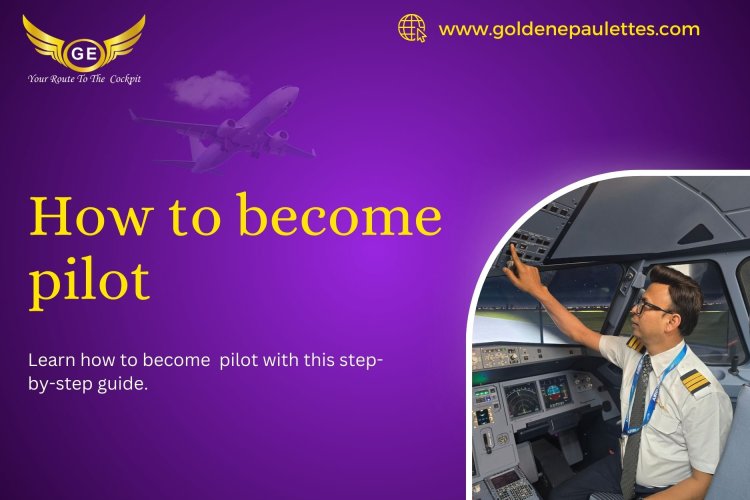How to Become Pilot After Engineering
If you’ve completed an engineering degree and are now dreaming of flying high, you're not alone. Many engineers transition into aviation every year. Here's a clear guide on how to become pilot after engineering and turn your technical skills into cockpit expertise.

How to Become Pilot After Engineering
If you’ve completed an engineering degree and are now dreaming of flying high, you're not alone. Many engineers transition into aviation every year. Here's a clear guide on how to become pilot after engineering and turn your technical skills into cockpit expertise.
1. Check the Basic Eligibility
Even with an engineering degree, you still need to meet standard eligibility criteria. You must have completed 10+2 with Physics and Mathematics, and be at least 18 years old. A Class 1 DGCA medical certificate is also mandatory before enrolling in flying school.
2. Choose a DGCA-Approved Flying School
With your academic background, you can join any DGCA-approved flying school in India or abroad. Your engineering discipline may help you better understand flight mechanics and systems. Training includes ground classes and flight hours needed to pursue how to become pilot through the CPL route.
3. Complete 200 Hours of Flying
To obtain a Commercial Pilot License (CPL), you need to complete a minimum of 200 hours of flying. This includes solo, dual, and cross-country flights. With your problem-solving mindset from engineering, you may find it easier to grasp concepts such as navigation and flight planning, which are essential in how to become pilot successfully.
4. Pass DGCA Exams and Apply for CPL
You’ll need to pass the required DGCA subjects like Air Navigation, Meteorology, and Aircraft Technical General. Once cleared, you can apply for your CPL. This is the official qualification that permits you to fly commercial aircraft, the final licensing step in how to become pilot after engineering.
5. Consider Type Rating and Airline Selection
To be job-ready, many engineers-turned-pilots go for Type Rating on aircraft like the A320 or B737. This specialized training increases your chances of being hired by airlines. Your engineering background could be an added advantage during airline selections and technical interviews.
Conclusion
Engineering graduates have a solid platform to succeed in aviation. With strong analytical skills and a passion for flying, your transition can be smooth and successful. Begin your journey by understanding how to become pilot after engineering and prepare for a career above the clouds.
What's Your Reaction?

















.jpg)
